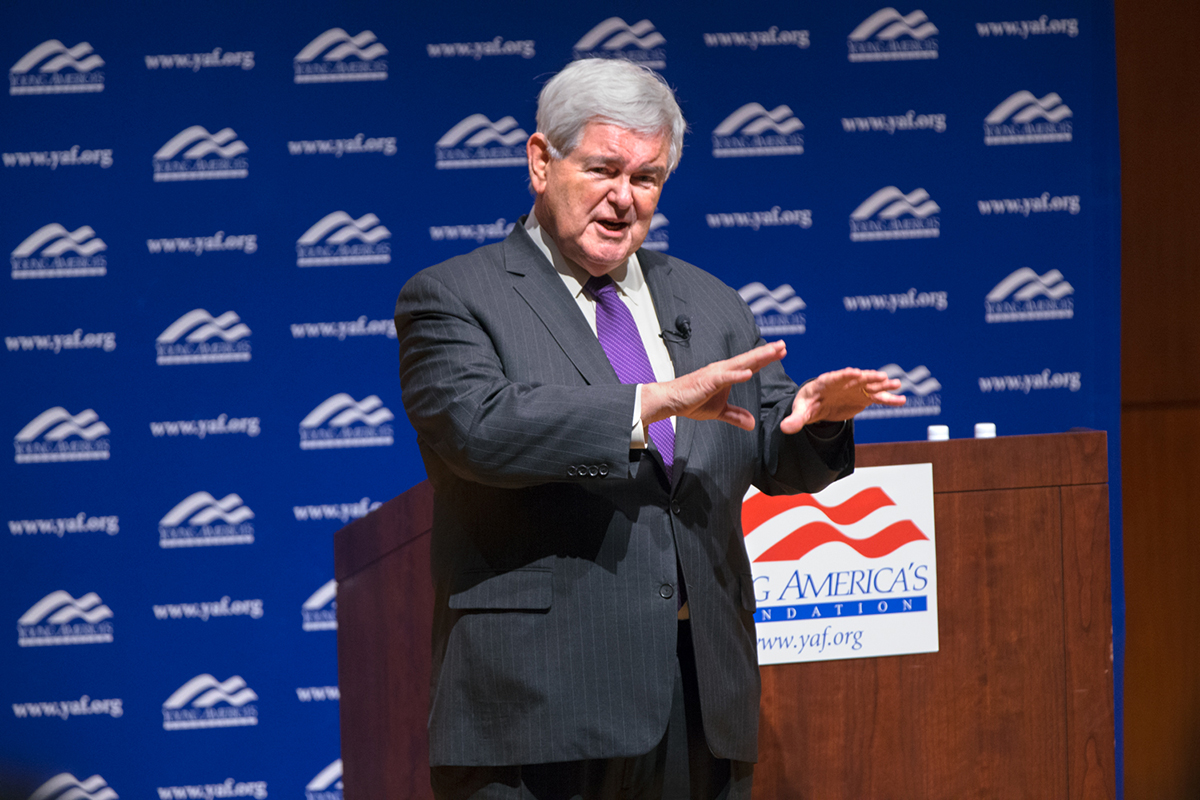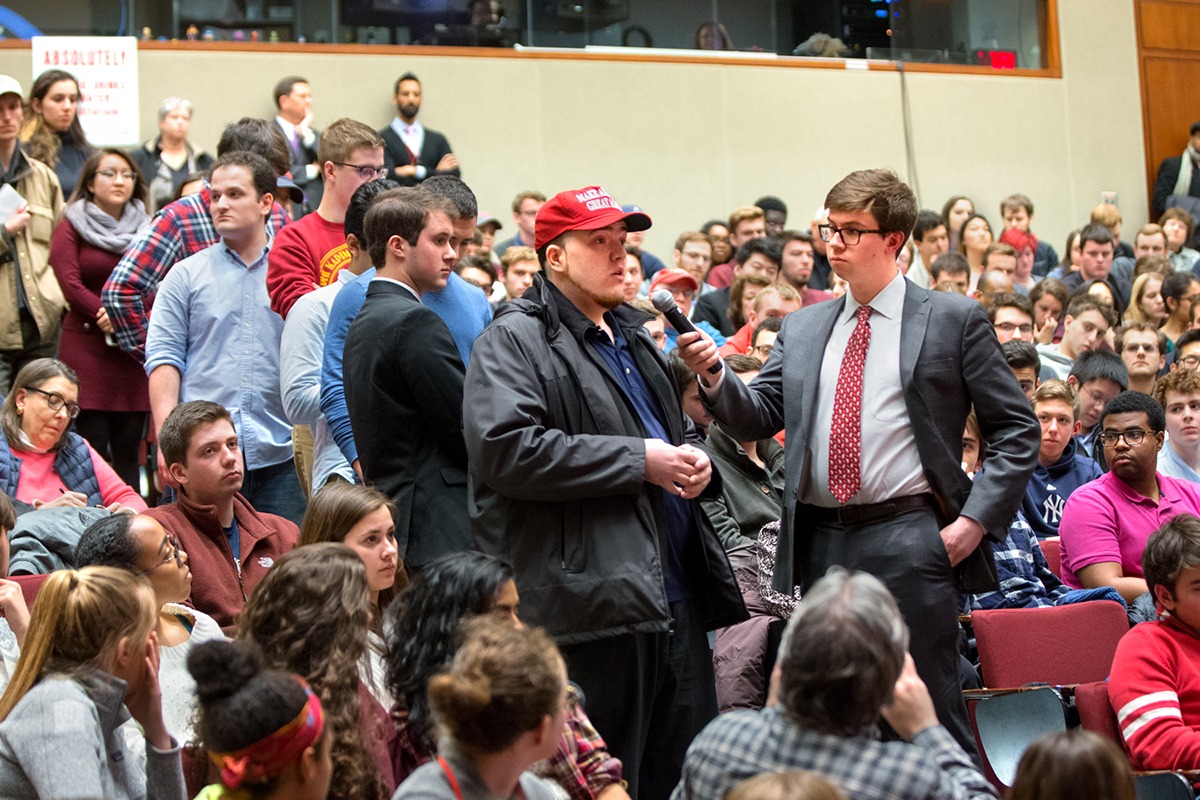Gingrich delivers talk on global role of U.S. to packed house
By Tom Fleischman

Before a capacity crowd of approximately 600 students, faculty and staff, former Speaker of the House of Representatives Newt Gingrich delivered a lecture, “America’s Role in the World Under President Trump,” March 22 in Call Auditorium.
The talk was presented by the Cornell University College Republicans (CUCR), and co-sponsored by the Young America’s Foundation (YAF), the self-proclaimed “principal outreach organization of the Conservative Movement.”
“I cannot tell you how delighted I am with the attitude and the tone and the willingness to really talk and share ideas among a very diverse group. And I’m very grateful to all of you,” Gingrich said. “And in the great tradition of our current president, I’m going to tweet about how great the students of Cornell are.”
His tweet, posted several hours after the event concluded: “Cornell students were very open and interested during my talk tonight. Nearly 600 came to the YAF sponsored event. Great dialogue on issues.”
The 73-year-old Gingrich, who taught history and environmental studies at West Georgia College for eight years before running for Congress in 1978, began with a little perspective, describing political turmoil in Brazil and Italy as a way of attempting to explain the Trump phenomena.
“If you really want to understand Trump, you have to work,” he said. “On the one hand, he’s very simple, but he’s also very complicated. I tell people: He’s one-third Andrew Jackson, for being a disruptive force. … For sheer biological energy, he’s one-third Theodore Roosevelt. He wakes up moving, and he’s moving all day long. … And for salesmanship, he’s P.T. Barnum.”
Gingrich referenced several books during his talk, including “Coming Apart: The State of White America, 1960-2010” by Charles Murray (2012). That book describes what are known as “Super Zip codes,” a class of people who are in the top 5 percent of income and education – “people who are all basically alike,” Gingrich said.

“It was very helpful in understanding why Trump was so hard to understand to the elites,” he said. “‘The Apprentice’ was a popular television show … but it wasn’t on PBS, so if you lived in a ‘Super Zip code,’ you had never seen it.”
Gingrich’s remarks were met with applause several times, including when he referenced Bernie Sanders as being a similar sort of cultural meteor as Trump. “With a few breaks, Bernie Sanders would have been the Democratic nominee,” Gingrich said. “And let me tell you: A Bernie Sanders-Donald Trump general election would have been wild.”
But the biggest applause, not surprisingly, came at the end of his response to a two-part question on criminal justice reform, when he said he is “totally opposed to [the Trump administration’s proposed] cuts to both the National Institutes of Health and the National Science Foundation.”
Emmanuel Nimarko ’19, who was born in Ghana and raised on Long Island, said Gingrich didn’t change his mind fundamentally. But Nimarko, a government major, did find something positive to take away.
“His comments on criminal justice reform was probably the highlight for me,” he said. “He showed support for a rehabilitative system, rather than a punitive one, which is very important.”
Austin McLaughlin ’18, CUCR executive director, appreciated the fact that Gingrich brought a historian’s background to his talk.
“His many references to books and historical events were pretty fascinating,” he said. “As a history major myself, I thought that was really cool to see.”
Media Contact
Get Cornell news delivered right to your inbox.
Subscribe